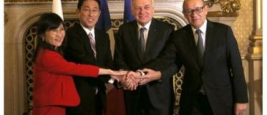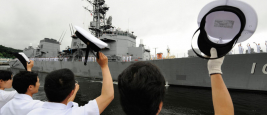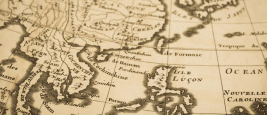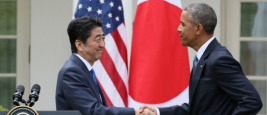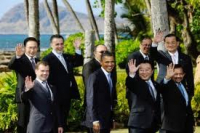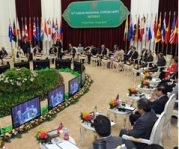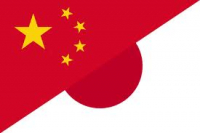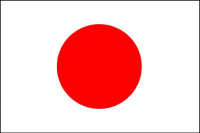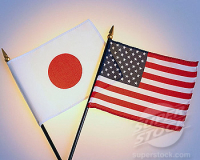Despite being geographically distant, France and Japan share a number of converging interests.

Japan
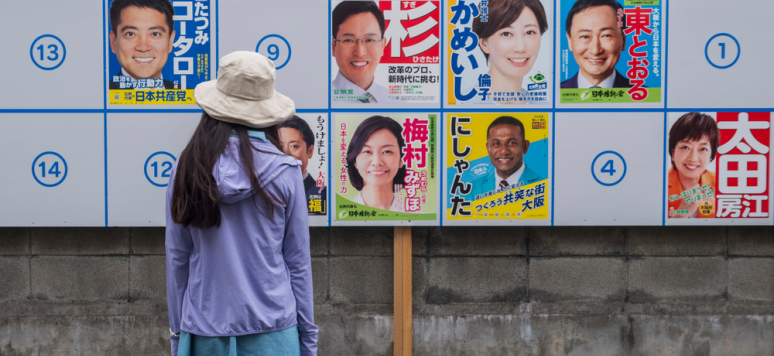
As the international system undergoes a major overhaul, Japan is emerging as one pillar of the multilateral rules-based order. Despite being often perceived as a declining country, it remains the world's third largest economy and, as a member of the RCEP, CP-TPP and the Japan-EU Economic Partnership Agreement, plays a key role in trade liberalization and norms shaping. In recent years, Tokyo has also demonstrated a proactive diplomacy, especially in the Indo-Pacific area where it is one of the core stakeholders. In this regard, Japan has become a major partner for Europe and for France.
Through its research activities, Ifri's Center for Asian Studies aims to provide a better understanding of Japan's action in the world and to foster the dialogue and cooperation between France and Japan.
Research Fellow, Head of Japan Research, Coordinator of the Program on Pacific Islands,
...
Research Fellow, Center for Asian Studies
...Senior Advisor, Center for Asian Studies
...This essay examines the need for growing coordination between the Japan Coast Guard (JCG) and the Japan Maritime Self-Defense Force (JMSDF) to better cope with gray-zone situations.
Coping with “gray zone” situations has in recent years become the core security challenge for Japan. Since September 2012, Beijing has been challenging Japan’s sovereign control of the Senkaku Islands by regularly sending law-enforcement vessels into Japanese territorial waters and...
Japan’s latest space policy is designed to support a more proactive US-Japan alliance role in containing China, and robustly defend Japan against North Korean ballistic missile threats.
On Tuesday July 12th, after three years of deliberations, the Permanent Court of Arbitration finally delivered its verdict on the conflict opposing the Philippines and China over status of the Spratly Islands in the South China Sea. The judgment is historic, as it goes far beyond the...
China’s rise, US rebalancing in Asia, historic defense reforms in Japan, the adoption of new Guidelines for bilateral cooperation: the Japan-US alliance has reached a turning point in its history.
Tokyo is known as a pioneer throughout the history of Japan’s environmental policy, often being compared to California in the United States or Paris in France. Following the global trend of growing local initiatives tackling climate change, Tokyo introduced a cap-and-trade scheme in 2010 ahead...
The debate on emerging donors raises a question whether traditional donors really follow their own ODA (Official Development Assistance) policies or not. This paper addresses the question by investigating Japan’s adherence to its own ODA policies.
While Tokyo prepares to welcome the 2020 Summer Olympic Games, the likelihood that a massive earthquake will occur in the capital city within the next thirty years is estimated at 70 %. This fact alone reflects the challenges that Japan must face in managing the risk of natural disasters.
Japan’s public diplomacy (PD) profile rests almost exclusively on the promotion of its cultural soft power. Today, in the complex geopolitical setting of Asia, in which national rivalries are reviving competing wartime history narratives and territorial disputes, this approach is no longer...
Leadership Change in East Asia and Implications for Regional Stability
Seminar with Ryo Sahashi, Associate Professor, Kanagawa University and Fellow with JCIE (Japan Center for International Exchanges), Marie-Orange Rivé-Lasan, Professor, University Paris Diderot and Alice Ekman, Associate Research Fellow,...
Trading Freely with East Asia
In 2006, the European Commission launched an ambitious plan to conclude a new generation of Free Trade Agreements (FTAs) with Asian markets as part of its Global Europe strategy. Today the use of such FTAs is all the more important since negotiations at the WTO are stalled, but also more...
The growing Chinese presence in Japan - What impact on the bilateral relationship?
Seminar with Reinhard Drifte, Emeritus Professor at the Newcastle University, UK. Chair: Céline Pajon, Research Fellow, Ifri Center for Asian Studies.
...
Japan in the aftermath of the catastrophy: What consequences for the energy and economic policies
Japan has just experienced its most serious crisis since 1945. Beyond the drama of human suffering, this dual natural and nuclear catastrophe will have profound consequences for the country's economic, industrial and energy strategies.
...
What Solution for the Japanese Economy?
This seminar is organized around Richard Collasse, CEO of Chanel K.K. in Japan. It will be chaired by Françoise Nicolas, Director, Center for Asian Studies Ifri.
...
East Asian Community Revisited: ASEAN+3 or 3+ASEAN
This seminar is organized around Takashi Terada, professor, Waseda university, Tokyo. He has published numerous articles on Asian regionalism.
Chair: Céline Pajon, Research fellow, Center for Asian Studies Ifri.
Unhappy Anniversary: The US-Japan Relationship and Okinawa on the 50th Anniversary of the Bilateral Security Treaty
This seminar is organized around Gavan McCormack, Emeritus Professor, Australian National University. He is an expert of modern East Asian, especially Japanese politics and intellectual, political, and environmental history. He has published numerous articles and books on the...
After the 30 August elections : What political, social and economic orientations in Japan ?
With Valérie Niquet, director of Centre Asie Ifri as Chair, Jean-Marie Bouissou, researcher at CERI et Evelyne Dourille-Feer, researcher at CEPII analyze the causes and implications of the Democratic party's victory in the 30 Auguts poll in...
Pourquoi le Japon souffre-t-il plus de la crise que les autres pays ?
Réunion organisée dans le cadre du cercle de réflexion des économies asiatiques avec Patrick Artus, Directeur de la recherche et des études de Natixis, et présidée par Françoise Nicolas, économiste, Ifri.






